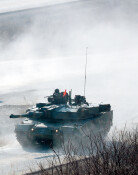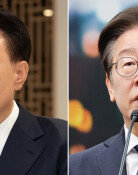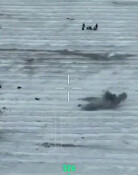The weight of the Constitution that breaks down martial law
The weight of the Constitution that breaks down martial law
Posted December. 19, 2024 07:42,
Updated December. 19, 2024 07:42
With all eyes on lawmakers gathering to vote to lift the declaration of martial law early morning on Dec. 4, many citizens might have feared that martial law troops would soon storm into the National Assembly, driving the plenary session into chaos. Unlike their expectations, the vote went smoothly to end the martial law situation. Even with a sense of relief, the whole nation was left puzzled by what had unfolded.
The recent martial law fiasco is reported to have mobilized at least 1,500 troops, most of whom have turned out to be the country’s top-tier units, such as the 707th Special Missions Group and the 1st Airborne Special Forces Brigade under the Republic of Korea Army Special Warfare Command (ROK-SWC); and the Special Duty Team under the Capital Defense Command Special Warfare Command (CDC). As if it had not been enough, the Defense Counterintelligence Command (DCC), the Korea Defense Intelligence Command (KDIC), and even police agents were ordered to participate. Given the scale and strength of these forces, the National Assembly’s vote would have been interrupted with little effort.
Additionally, investigators have found that President Yoon Suk Yeol kept pushing the ROK-SWC, the CDC, and police troops to kick lawmakers out of the plenary session while the then Defense Minister Kim Yong-hyun threatened that those against his words would be punished for mutiny. Even at the urging of the two top leaders, troops remained somewhat passive, making the recent martial law situation decisively different from the ones declared previously.
As Nobel-winning author Han Kang puts it, most martial law troops deployed to Gwangju in 1980 showed brutality that lacked a sense of guilt and reluctance. Oxford Professor Jeff McMahan says that there are three types of excuses – suppression, epistemological limits, and a reduced sense of responsibility – that troops who are forced to join such an unjust act may typically make afterward. In other words, they are likely to claim that their hands were tied, they did not know it was wrong, or they had mental issues. Martial law troops in the past probably used some of these typical excuses.
It has always been the case that soldiers are under pressure to follow orders. However, those who were part of the martial law situation in Seoul this winter were aware that they should not point their guns at civilians and followed their commitment - even against the orders. This seems to be where the power of the Constitution and the changing times played a role.
Many may agree that martial law was declared in political circumstances, just as President Yoon referred to “budget bills handled by tyranny” and “unilateral legislative activities.” Nevertheless, they do not satisfy the constitutional requirements of declaring martial law. Even the Constitution stipulates that the command of the Armed Forces – the basis of the presidential power to apply martial law - should be exercised according to the Constitution and relevant law. However, it is one of the core presidential powers as per the Constitution.
Furthermore, the Armed Forces are required to maintain “political neutrality” according to the Constitution. All things considered, the Constitution prohibits the President from destroying the political neutrality of troops for political purposes. Although the concept of the Armed Forces’ political neutrality may be taken for granted from today’s perspective, it was only enshrined in the Constitution in 1987 after the Gwangju Uprising took place. Before then, martial law had been declared as many as 11 times, and three garrison decrees had been proclaimed, causing the Armed Forces to harm civilians. A large crowd of citizens suffered pain and crisis under military dictatorship. The principle made it into the Constitution through all the blood, sweat, and tears of those brave.
Some may assume that soldiers suddenly sent to the site according to martial law would not have time to be reminded of the Constitution. Only a few might have been aware of these detailed clauses in the Constitution. Those deployed to the site acted according to the Constitution stipulates, making lifting martial law based on constitutional proceedings possible. As it turned out, the Constitution was upheld.
This was made possible thanks to the deeply ingrained constitutional values in individuals’ awareness over many decades. The weight of their faith was strong enough to block the martial law fiasco led by the President eventually. We now live in an era where power is never seized through military action. Fortunately, we witnessed a beam of hope at the end of the tunnel of disorder and shock.
Headline News
- Internal rebellion investigation transferred to Public Prosecutor's Office
- Gov’t to approve Yongin Semiconductor National Industrial Complex
- US conservatives rally around Trump’s third term
- Lee Hyo-song named youngest Rookie of the Year in JLPGA history
- Controversy escalates over the appointment of Constitutional Court justices







